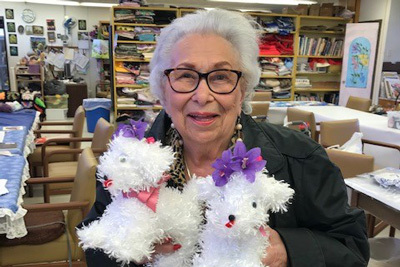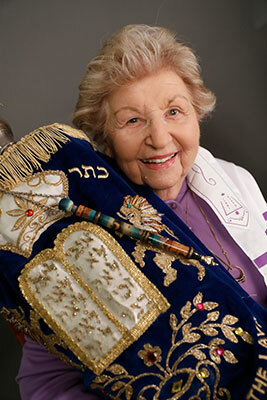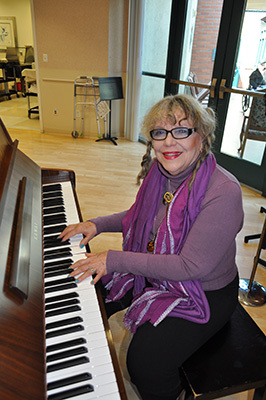“This Shall Pass:” Jewish Home Seniors Share Their Wellness Wisdom


“This Shall Pass:” Jewish Home Seniors Share Their Wellness Wisdom

Many of us feel challenged by the current stay-at-home orders, including our socially isolated residents. To protect their health, our staff are delivering meals to our residents' rooms, finding creative ways to keep them active and doing their best to accommodate their emotional and physical needs as they shelter in place.
Overall, however, our residents are resilient people. Some are Holocaust survivors, while others have struggled and overcome other personal hardships. Ask a resident how they're doing while under social isolation, and they'll tell you that while it's difficult, they understand it's necessary for their own good, as well as the greater good. They are making the best of the situation.

"This shall pass," advises Edith Frankie, a survivor of the Nazi concentration camps. "People don't like restrictions. Me? I'm used to it. Staying in our rooms is not so hard in comparison."
Frankie lives on the Home's Grancell Village campus at the Joyce Eisenberg-Keefer Medical Center. She keeps her hands busy by crocheting. She keeps her mind busy by playing word games organized by the activities staff.
"People who feel isolated should do some exercises," she says. "I have been working out three times a week in our fitness center. The staff know what they're doing. I feel so much better after doing exercises for a half an hour."
"They are doing a fantastic job here trying to keep us upbeat," says Leslie Scales, who lives at Eisenberg Village. "We miss our families. But there's not much else we can do. We are safe and healthy and that's all that matters."
Scales looks forward to playing the daily "Dial-A-Bingo" games and receiving her lunch in her room. "The dietary staff are phenomenal," she says.

Meanwhile, Michal Robins, who also lives at Eisenberg Village, limits her TV-watching to once a day. The behavior therapist spends her time listening to music and writing a book for fellow therapists.
And, as president of the resident council, Robins finds herself in a leadership role during the pandemic. "I'm teaching others to be positive. People are antsy being by themselves," she says. "But the staff here are doing a great job reminding us to practice good hygiene and to keep a safe distance."
A Juilliard-trained musician, Robins is hopeful that she'll be able to return soon to leading the Oneg Shabbat concert and sing-a-long. "If we trust the experts, follow their instructions, and take our vitamins, we'll see better times. We hope for a miracle and push the days until we have a vaccine," she says.
Resident Marilyne Holm, a former fashion designer, spent most of her time in the Eisenberg Village art room before the mandatory lockdown. While she misses the camaraderie of working in the art room, she is managing to stay productive, thanks to a Los Angeles Jewish Health staff member who delivers art supplies to her room.
Holm is known for creating Mendels (little stuffed dogs wearing yarmulkes), which she sells to the public. She's been continuing to sew them, as well as teddy bears, in her room. "I'll have a whole kennel once lockdown is done," she says.
Like her fellow residents, Holm understands that socially isolating is necessary. "I know this has to be done," she says. "Thank God I'm here at the Home, where I'm safe."